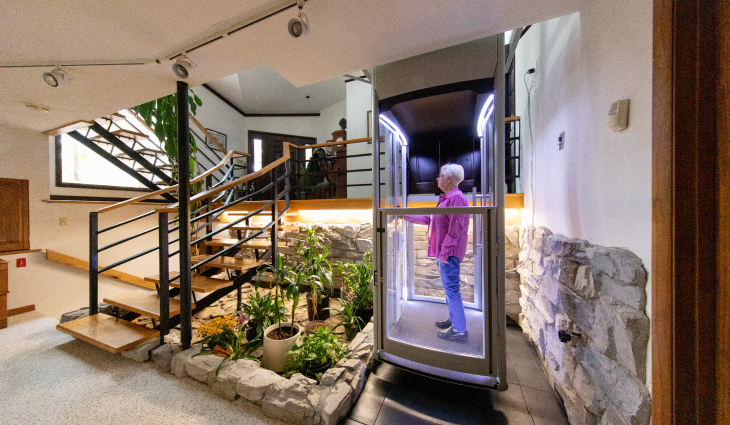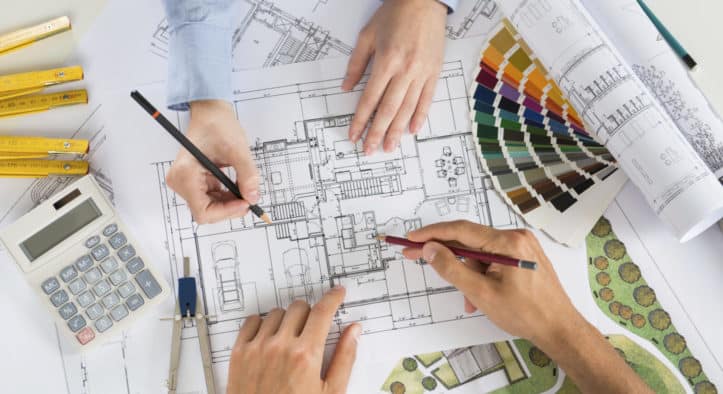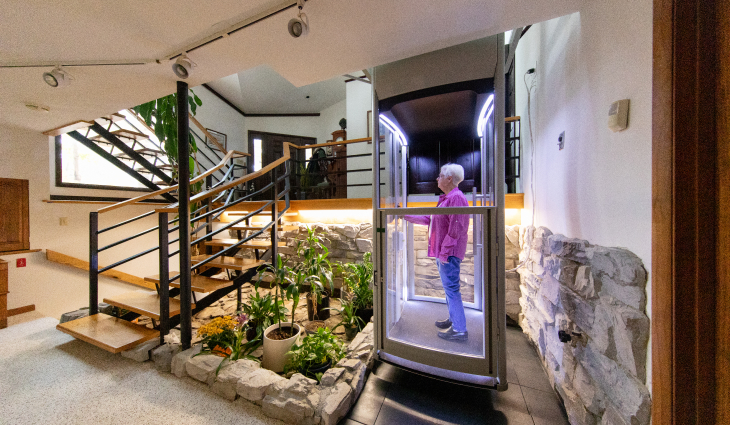If you or someone in your home has mobility challenges, a home elevator could be a great solution for accessibility. If you decide a home elevator is the best option, you must account for different factors when choosing the right one and size. As you’ll learn in this blog post, it’s good to familiarize yourself with these factors, including a home elevator’s size requirements and weight capacity, before making your decision.
Rest assured that Signature Elevators & Accessible Design can help you choose the best home elevator size for your needs. Continue reading to learn about home elevator size requirements to make an informed decision for you or your loved one.
Home Elevator Size Requirements
For your residential elevator to be ADA-compliant, it should meet the following size requirements:
- Door width: 36 inches
- Cab depth: 51 inches
- Width: 68 inches at a minimum or 80 inches for centered doors
The team at Signature Elevators will ensure your home elevator meets these requirements to remain ADA-compliant.
Standard Home Elevator Dimensions
Home elevator dimensions are determined by home layout, elevator type, architectural features, and residential building codes. That said, most residential elevators have a width of 48-60 inches, a cab depth of 36-60 inches, and a height of at least 80 inches. Builders should never use a cookie-cutter approach when installing home elevators, as every home is unique.
While most homes can accommodate an elevator, it’s critical to discuss space concerns with our team before proceeding. These discussions ensure that your home elevator is constructed in the most available space.
Weight Capacity of Home Elevators

In many cases, selecting a home elevator’s weight capacity is just as important as picking the size. Elevator weight capacity indicates the number of people who can ride in the cab at any given time. It also provides an accurate idea of extra items you can bring, like groceries or home goods.
There are typically four weight capacities of residential elevators, including:
- 500 pounds
- 750 pounds
- 950 pounds
- 1,000 pounds or more
Our home elevator technicians will help you choose an elevator with the perfect weight capacity for your personal needs.
Home Elevator Machine Room
A home elevator machine room is a specific area below or above the elevator to store and maintain the system’s mechanical pulley, motors, power cables, and other essential components. Before determining if a home elevator machine room is best for you, an expert will assess your property and see if you have the necessary space for this addition.
Another key consideration is your elevator’s powering system. Once it’s confirmed that your home has room for a home elevator machine room, your team can choose the right powering system. The powering system affects the machine’s movements and possible elevator installation locations. If you don’t have enough space for an elevator machine room, you may still be able to move forward with other home elevator options.
Schedule a Consultation With Signature Elevators & Accessible Design
At Signature Elevators & Accessible Design, we know that a high-quality home elevator can allow those with mobility challenges to remain safe and comfortable in their own residence. With over a decade of experience, you can count on us for top-quality work and friendly, unmatched service. We can install home elevators, chair lifts, and other accessible home design projects in Virginia, Maryland, and DC Metro.
Contact Signature Elevators to schedule a home elevator consultation in Virginia, Maryland, or Washington, DC.









